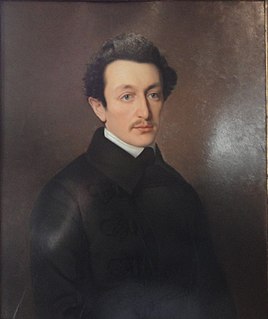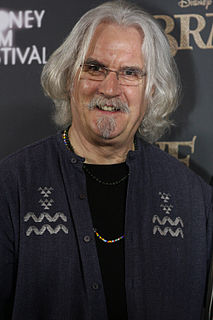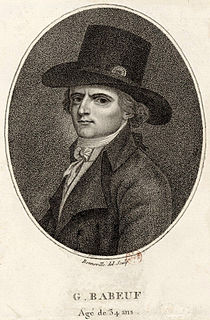A Quote by Katherine Langford
Anything written in the French Revolution, that kind of era, is so poignant.
Quote Topics
Related Quotes
The transformations of the French empire itself or of French power structures themselves as well as the emergence of a kind of language of equal rights starting with the American Revolution and the French Revolution provided an opportunity and in some ways connected with other kinds of ground level desires or hopes and ideologies for freedom that were coming out of the plantation regime itself.
In comparison to the French Revolution, the American Revolution has come to seem a parochial and rather dull event. This, despitethe fact that the American Revolution was successful--realizing the purposes of the revolutionaries and establishing a durable political regime--while the French Revolution was a resounding failure, devouring its own children and leading to an imperial despotism, followed by an eventual restoration of the monarchy.
A revolution is bloody, but America is in a unique position. She's the only country in history in a position actually to become involved in a bloodless revolution. The Russian revolution was bloody, Chinese revolution was bloody, French revolution was bloody, Cuban revolution was bloody, and there was nothing more bloody then the American Revolution. But today this country can become involved in a revolution that won't take bloodshed. All she's got to do is give the black man in this country everything that's due him, everything.
We live in this era that has benefited from the Industrial Revolution, and we live with a kind of luxury and plenty that even all but the poorest of Americans live with a kind of sensuousness that was unimagined by medieval kings. But in order to get to this point, a lot of people had to suffer in really terrible ways.
Biomimicry is innovation inspired by nature. In a society accustomed to dominating or 'improving' nature, this respectful imitation is a radically new approach, a revolution really. Unlike the Industrial Revolution, the Biomimicry Revolution introduces an era based not on what we can extract from nature, but on what we can learn from her.
Justice has its anger, my lord Bishop, and the wrath of justice is an element of progress. Whatever else may be said of it, the French Revolution was the greatest step forward by mankind since the coming of Christ. It was unfinished, I agree, but still it was sublime. It released the untapped springs of society; it softened hearts, appeased, tranquilized, enlightened, and set flowing through the world the tides of civilization. It was good. The French Revolution was the anointing of humanity.
People are always saying it's the end of the Gutenberg era. More to the point, it's a return to an oral era. The Gutenberg galaxy was about the written word. At its best, the digital era is part of the rediscovery of the oral. At its worst, it's a Kafkaesque victory of the bureaucratic over the imagination.




































